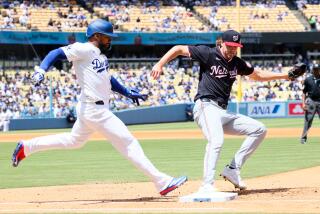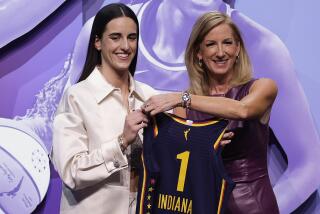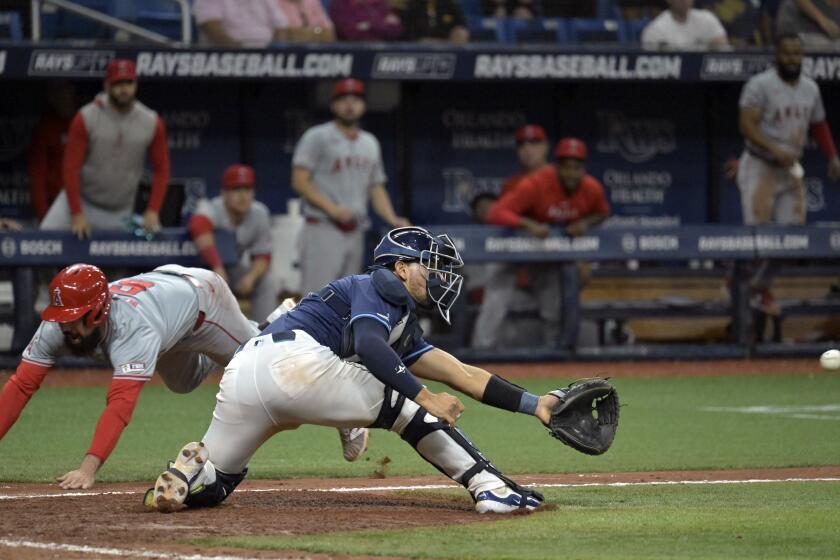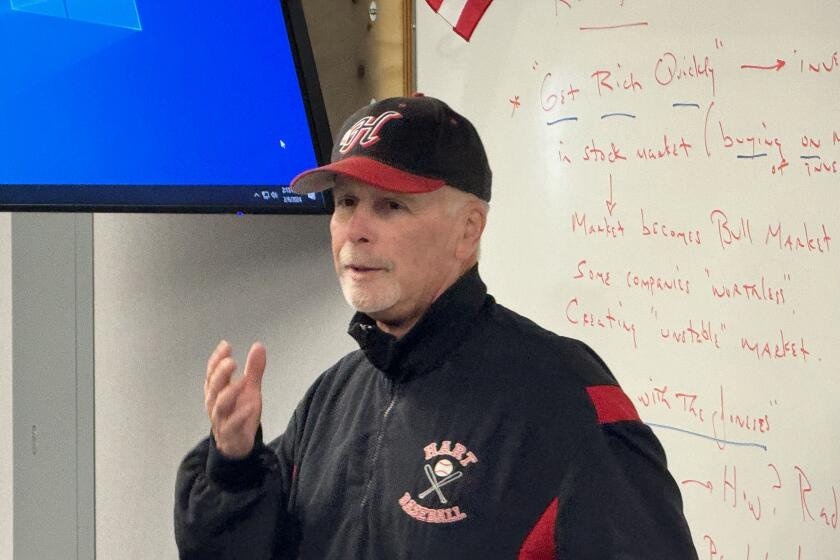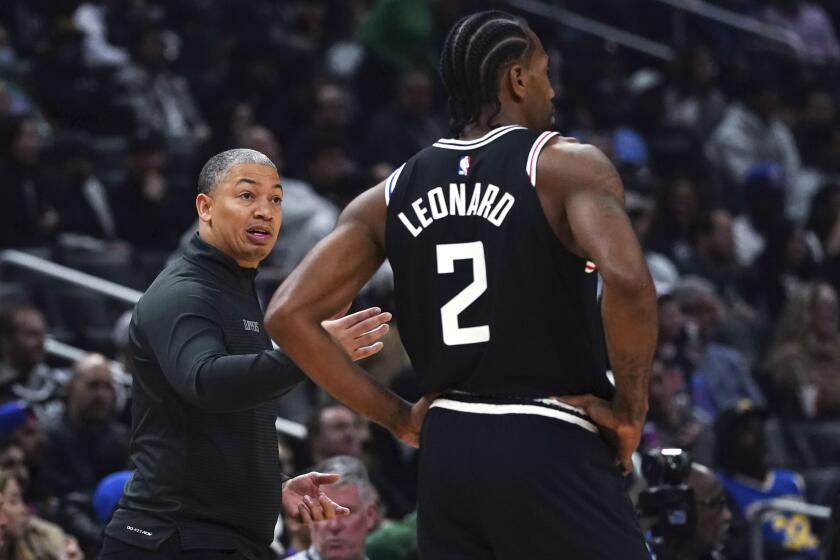In tough times, motor racing seeks new economic engines
After winning the NASCAR Sprint Cup race at Atlanta Motor Speedway a week ago, driver Carl Edwards performed his signature victory back flip and, in a post-race TV interview, gave the obligatory thanks to his team and sponsors.
Then Edwards gazed at the grandstands, where swaths of empty seats were plain to see, and thanked the fans who bought tickets to the race.
“I thought it was important,” Edwards said later. “I thanked the fans that came. You can’t get around the fact that right now is tough times.”
These are tough times, indeed, for NASCAR and all forms of motor racing that are being pummeled by this year’s economic upheaval.
High fuel prices and plunging housing values are crimping race fans’ budgets, and the Wall Street credit crisis is battering corporate sponsors and the auto manufacturers.
Track attendance is down nationwide. Companies looking to slash costs are less willing to sponsor racing. As a result, some NASCAR race teams, including venerable teams such as Richard Petty’s Petty Enterprises, are considering mergers to survive.
Car maker General Motors also is considering a merger, with Dodge parent company Chrysler, in the face of slumping sales. With GM already having announced plans to shave its auto racing spending, the merger talks have raised fears of even deeper cuts.
“We’re nervous like everybody else,” said NASCAR Chairman Brian France. “We’re taking every precaution we can in terms of getting costs out of our system on behalf of the team owners, on behalf of the track operators.”
The concern applies not only to NASCAR stock-car racing -- whose next race is the Dickies 500 today at Texas Motor Speedway -- but also to the Indy Racing League’s IndyCar Series and the NHRA’s Powerade drag-racing series.
“There is no question that the last few weeks have had a negative impact with some of our sponsorship development,” said Terry Angstadt, president of the IRL’s commercial division.
“We were pretty advanced with a financial institution [about sponsorship] and that simply went away, and we completely understand,” he said.
And just as the financial crisis had global reach, so did its ripple effect.
The international Formula One series, where teams such as Ferrari and McLaren Mercedes spend $200 million or more annually for what many consider the most technologically advanced race cars in the world, is feeling the pinch too.
Formula One’s governing body, the FIA, is working with teams to cut what it called “unsustainable” costs, including a possible switch to standardized engines in 2010.
Otherwise, it warned, Formula One could see more teams drop out, “reducing the grid to an unacceptable level.”
In the drag-racing series, whose season ends Nov. 13-16 in Pomona, “the process has certainly slowed” for attracting sponsors, said NHRA President Tom Compton.
But the NHRA and the IndyCar Series hope they still can garner sponsorship dollars because they are smaller series than NASCAR and sponsorships aren’t as costly.
“More folks out in corporate America are going to take a look at us,” Compton said. And although drag racing also has seen an attendance drop, it has been less than 10% and “we feel like we’re still in a pretty good place,” he said.
The financial pressures on NASCAR apply not only to its premier Sprint Cup Series but also to its second-tier Nationwide and Craftsman Truck series.
Dale Earnhardt Jr., NASCAR’s most popular driver, who also owns a Nationwide team, on Friday cited “a lack of interest in sponsoring the Nationwide Series, which is probably going to be growing, unfortunately.”
Even so, Earnhardt last month announced that consumer-products giant Unilever had signed up as the main sponsor of his Nationwide car for 10 races next year.
“We’re going through tough times like a lot of people,” said four-time Cup champion Jeff Gordon. But he noted that Cup races still draw more spectators that most sporting events, and “we’re still very, very healthy.”
And with gasoline prices turning down again, and signs emerging of potential stability in financial markets, the racing world hopes the worst is over.
“Hopefully, we’ll get through this,” Edwards said, “and it won’t cost the sport anything we can’t rebound from.”
--
More to Read
Get our high school sports newsletter
Prep Rally is devoted to the SoCal high school sports experience, bringing you scores, stories and a behind-the-scenes look at what makes prep sports so popular.
You may occasionally receive promotional content from the Los Angeles Times.

